DAVAO ORIENTAL – The provincial government of Davao Oriental is stepping up its efforts amid the threat of the African Swine Fever (ASF) that has already affected some parts of Mindanao and the Davao Region.
Governor Nelson Dayanghirang has directed concerned offices and agencies to tighten security measures, especially at the province’s borders to ensure that swine and meat products from the affected areas will not reach the province. With close coordination with the Philippine Army as well as the Philippine National Police, Governor Dayanghirang said that the province is doing the best it can to keep the disease at bay.
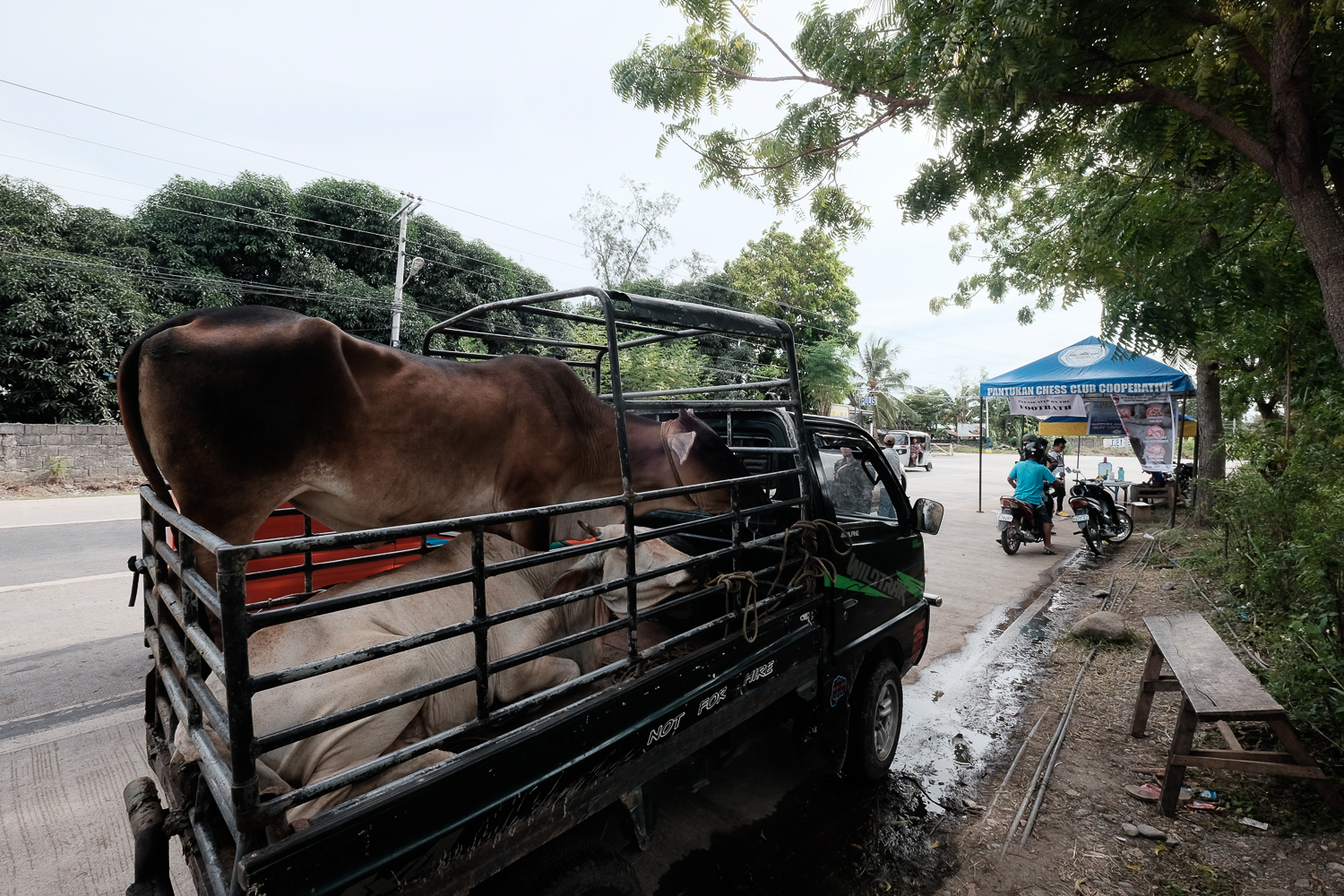
Since last year, the province, through the Governor’s Executive Order no. 29, has temporarily banned the entry of swine, pork, pork-related products and by-products from Luzon areas and other ASF-affected areas – which now include the neighboring provinces of Davao del Sur, Davao Occidental, and Davao City.
The Provincial Government has established four boundary checkpoints which are located at Barangay Pintatagan in Banaybanay town, Barangay Marayag in Lupon town, Sitio Maylaya, Barangay Malibago in Cateel town, and Barangay Carmen in Boston town. While other Local Government Units have also initiated the establishment of checkpoints in their respective LGUs, the City of Mati has implemented a lockdown for swine and pork products.
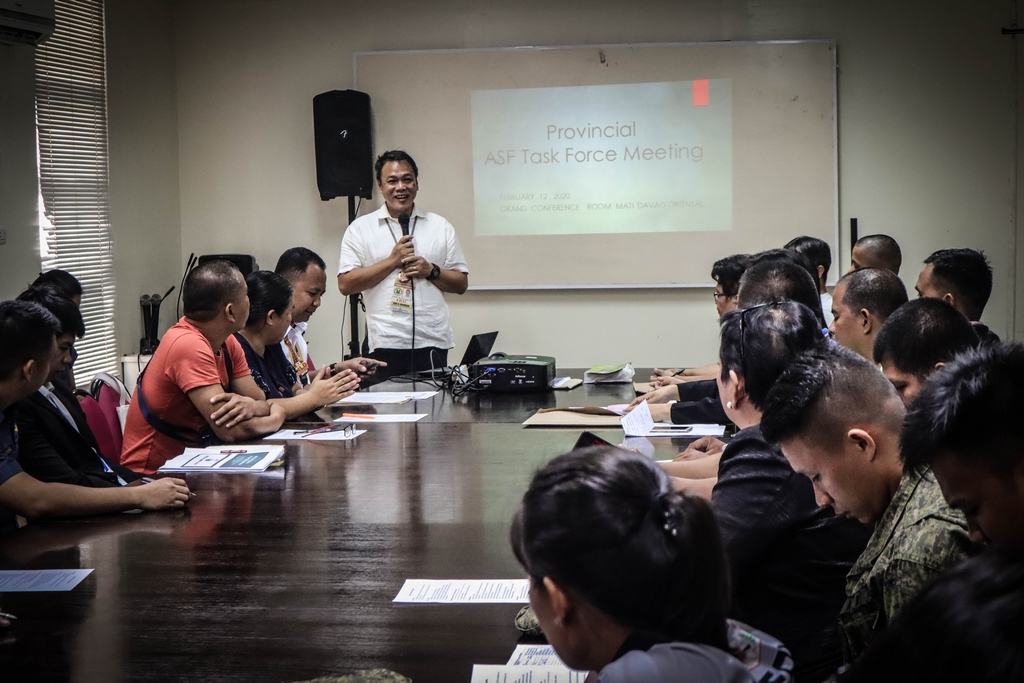
Provincial Veterinarian Dr. Eric Dagmang said that among the quarantine measures implemented at these checkpoints include the inspection of proper documents such as Veterinary Health Certificate and Veterinary Shipping Permit for live animals and Meat Inspection Certificate as well as shipping permit for meat products. “We strictly enforce the policy of not allowing the entry of meat products and livestock without these requirements,” he said. “We have coordinated with everyone to contain the ASF. We have sent our people to help the police and military personnel at our checkpoints,” he added.
Currently, the provincial government is looking at augmenting the number of civilian personnel assigned at these checkpoints to assist police and military personnel.
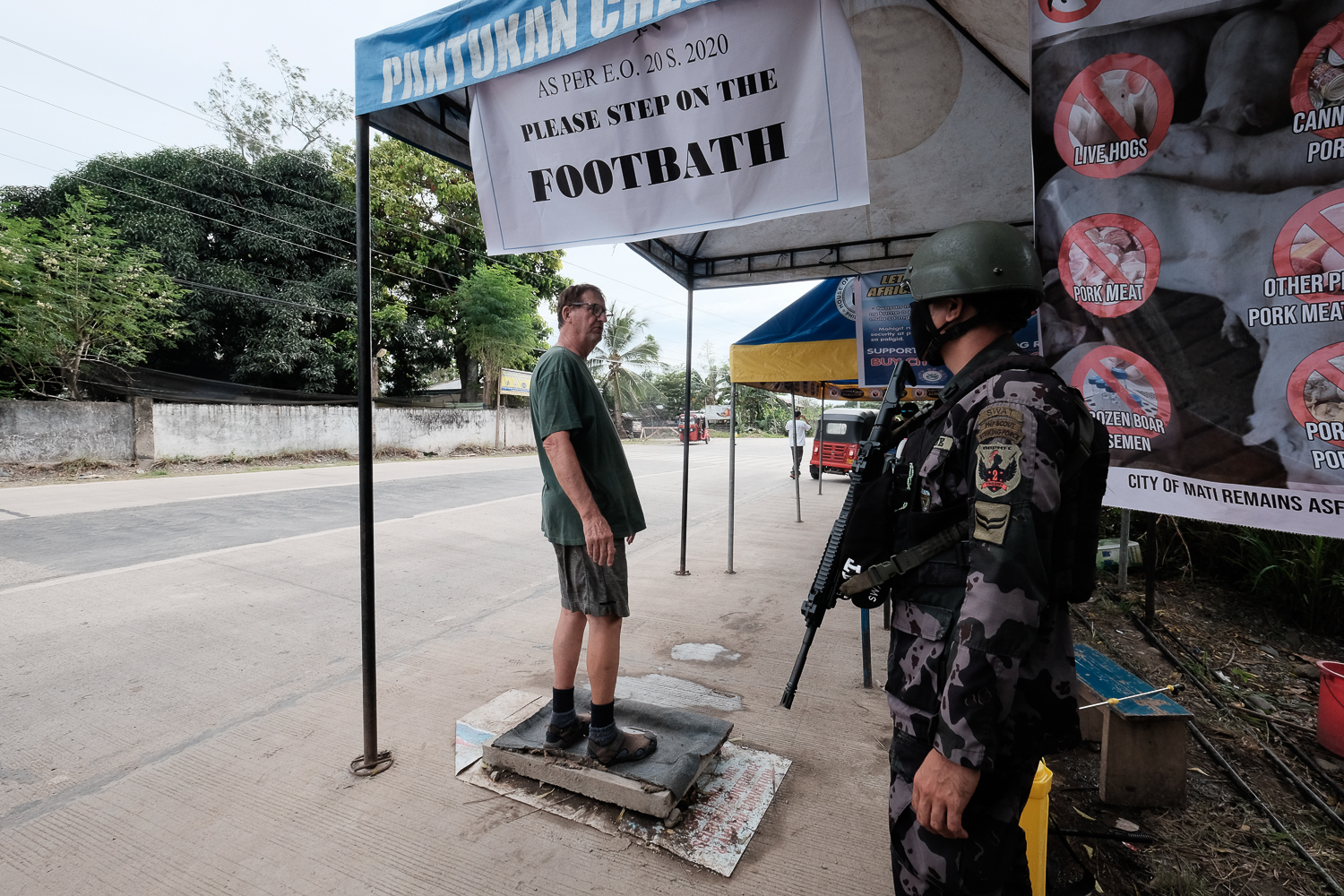
On the other hand, the province is also closely coordinating with the Philippine Coast Guard, barangay officials, and the “bantay-dagat” to secure the coastal areas, particularly in some parts of the towns of Governor Generoso, San Isidro, Lupon, and Banaybanay, which are possible entry points for banned meat products that might be transported through the sea.
Measures to Counter ASF
Meanwhile, during the recent meeting of the Inter-agency Task Force for ASF, Dr. Dagmang discussed with the Municipal Veterinarians, Municipal Agriculture Officers, meat inspectors, the military, and the police the protocols to contain the ASF.
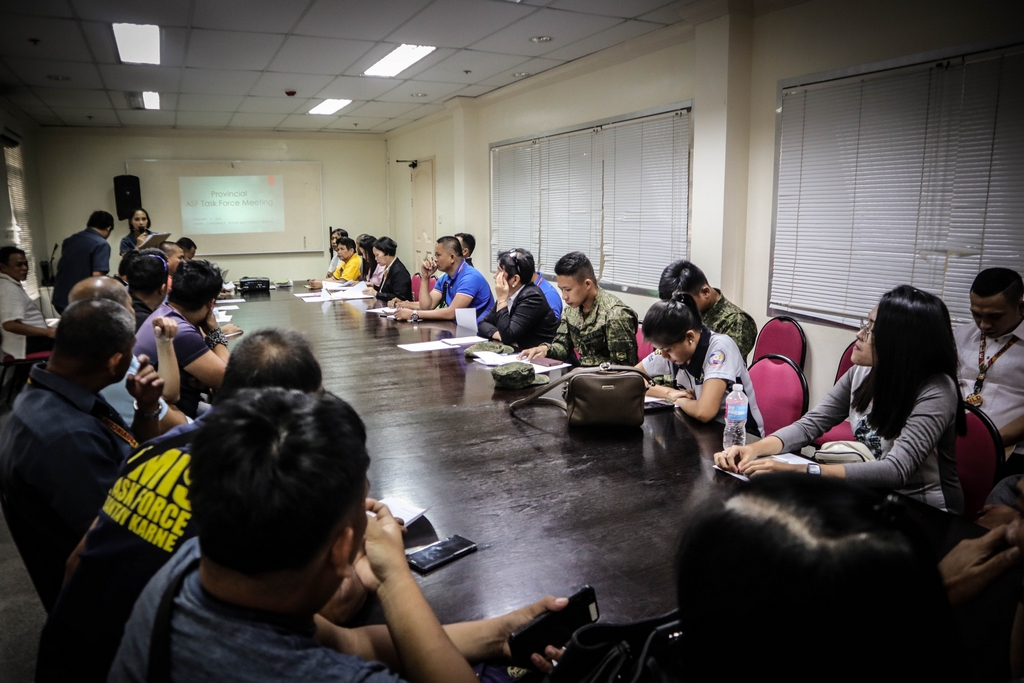
Among these protocols is the establishment of the Early Warning System at the barangay level which involves the prompt reporting of suspected cases of ASF. “Through the system, the barangays are directed to report to us at least two to three times a week, every three o’clock in the afternoon, of whether or not there are suspected ASF in their areas of responsibility,” he explained.
Moreover, the provincial government through the Provincial Veterinarian’s Office has intensified educational campaign, especially among hog raisers, to contain and limit the spread of ASF.
Among the efficient ways to contain the disease is avoiding swill feeding to pigs, particularly leftover foods or food wastes coming from restaurants and other food establishments; practice of strict biosecurity measures in pig farms by not letting outsiders enter the vicinity of their farms, and prompt reporting in case of suspicious incidence of mortality of pigs.
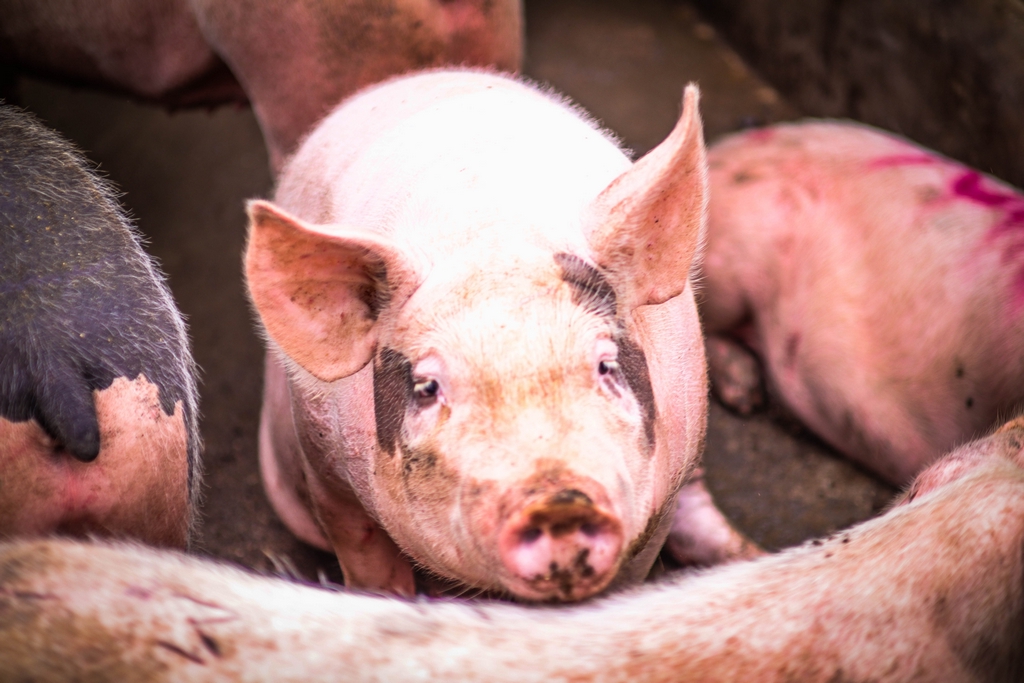
Moreover, Dr. Dagmang said that the province has already established a contingency plan in the event of an outbreak. Part of the plan is the adoption of the “1-7-10” protocol. “This means that pigs affected within a one-kilometer radius from ground zero will be culled in the most humane way possible. While hogs within the 7-kilometer radius or the quarantine zone will be subject to restricted movement, surveillance, and testing. For the 10-kilometer radius or the surveillance zone, mandatory monitoring and observation shall be implemented,” he said.
Furthermore, municipal local government units are asked to identify at least two burial sites owned by the local government. The Provincial Veterinarian’s Office is now stockpiling disinfectants and has been preparing for more interventions as part of the intensified campaign against the ASF. These will be funded under the Calamity Fund of the Provincial Disaster Risk Reduction and Management Office.
Economic Impact
Although a highly contagious disease, ASF does not affect humans. However, it poses a huge threat due to production and economic losses.
For the Province of Davao Oriental, which supplies 60 percent of its own demand for swine and hog products while outsources the remaining 40 percent, the threat posed by the ASF would be devastating.
As per data from the Philippine Statistics Authority (PSA), the swine population in Davao Oriental for the year 2020 is at 116,461 heads. Its total economic value is estimated to be at P931.6 million, given the conservative value per head at P8,000. With an average of 130 heads slaughtered daily, an estimated P1.5 million is at stake for loss in the event that ASF affects the province.
“Its economic impact is really huge. Businesses and jobs are at stake. So, we must do everything we can to contain it,” he said.
“Whatever interventions we do, we make sure to involve the barangays, the municipal government units, and other stakeholders because we cannot do it alone. Everyone should be involved,” Dr. Dagmang said as he called on everyone to help contain the spread of the ASF. By Karen Lou Deloso/Photos by Eden Jhan Licayan and Franz Albo



